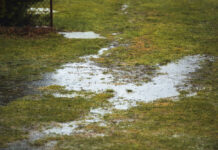For many consumer packaged goods (CPG) companies, the constraints of capitalism naturally mean practices that compromise the environment. But Harmless Harvest — the world’s first Fair-for-Life-certified coconut water — is leading the charge towards sustainability at every level of its business.
Harmless Harvest is dedicated to generating positive feedback loops between people and plants. The company’s vision is a world where nutritious, clean, organic food and beverages are the standard rather than the exception; where all people involved in the chain of custody are treated with fairness; and the planet is treated harmlessly.
Harmless Harvest is a progressive food & beverage initiative set to demonstrate that ecosystem-based businesses can out-compete the conventional model, by integrating the long term welfare of all its stakeholders – from plant to customer.
In 2009, founders Justin Guilbert and Douglas Riboud embarked on a global quest for the world’s best-tasting coconuts… and found them in a village in Thailand. Knowing that heat pasteurization (“cooking”) or adding citric acid would kill the flavor and nutrients of these fragrant coconuts, the company pioneered an alternate way to keep the product close to its natural state. In 2011, they introduced the world’s first sustainably harvested, organic coconut water and are now one of the leaders of the category nationwide. The company achieved a nation-wide distribution deal with Whole Foods Markets and recognition as America’s best-tasting coconut water (voted #1 by the top industry publication).
Combining innovative scientific methods with local traditional farming practices, Harmless Harvest develops and manufactures products that deliver the nutritional and ethical integrity that nature intended.
Harmless Harvest is proud to be the first Fair for Life certified coconut water. Fair for Life verifies their commitment to paying fair wages, providing decent working conditions abroad and in the USA, and reinvesting in the communities at the source. Harmless Harvest offers free healthcare to their partners through their Fair for Life initiatives, and since the program’s inception, they have provided medical and vision check-ups to 776 farmers and their communities, 80% of whom had never received medical care.
The company has developed an ‘Ecosystem-Based Business Model,’ which focuses on the quality of the products, the welfare of everyone in the supply chain, and the health of the planet. It also requires that every business decision benefit every company stakeholder — and it considers the coconut trees in Thailand and the land itself to be ‘stakeholders’ as well.
The three areas where Harmless Harvest focuses efforts for sustainability are:
1. INNOVATION
Paradoxically, the more natural the product, the more involved the process to package it for consumers. Without nutrient-killing pasteurization or citric acid additives, Harmless Harvest is constantly developing new processing methods. And just this month, it rolled out a proprietary, environmentally conscious method called ‘Multi-Step Micro-Filtration’ that allows them to use bottles with an average of 24% less plastic compared to previous.
2. ORGANIC ONLY
Harmless Harvest only uses organic ingredients, harvested from certified organic farms. With this uncompromising standard, Harmless Harvest is able to ensure that no pesticides, synthetic fertilizers, or sewage sludge enter the environment as a result of its harvests. Not only do these substances take energy to produce, they contribute to soil degradation and ocean dead zones.
3. ORGANIC CERTIFICATION ASSISTANCE
While organic farming is the only way to assure sustainability, the steps involved can be complicated and costly. Harmless Harvest has helped over 300 farms achieve their organic certification, resulting in acres of sustainable farmland across Thailand.
Happily, the rigorous measures required for environmental sustainability also result in a higher-quality product. Businesses can help preserve the planet’s resources while all the while protecting people’s bodies against harmful pesticides and synthetic fertilizers. As an ecosystem-based business, conscious steps can be made to ensure the best quality of products, the welfare of people, and the health of the planet.
Find a Home-Based Business to Start-Up >>> Hundreds of Business Listings.

















































